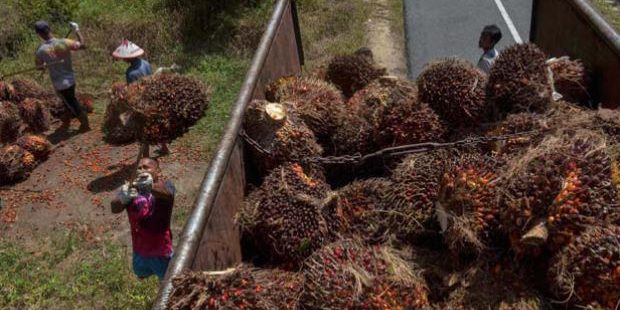Rabu, 10 April 2019 | The Jakarta Post
Relations between the European Union and Malaysia and Indonesia hit an obstacle when Malaysia”s Prime Minister Mahathir Mohamad and Indonesia”s Coordinating Maritime Affairs Minister Luhut Pandjaitan recently threatened to boycott EU”s products if the bloc issues a ban on palm oil as a biofuel.
As the largest buyer of certified sustainable palm oil, the European Commission recently concluded that palm oil cultivation has led to excessive deforestation. Consequently, palm oil will no longer qualify to be considered toward the EU renewable transportation targets for national governments. This presents a major setback for the industry as nearly half (48 percent) of all EU”s palm oil imports in 2016 were channeled to biofuels.
In a December commentary on the EU”s Renewable Energy Directive (RED II), the Singapore Institute of International Affairs (SIIA) cautioned against outright bans and singling out key exports such as palm oil from developing countries. While protecting national interests is important, any attempt to engage in trade retaliation in reality would do little to offer a long-term, win-win solution. A more constructive and lasting approach is to examine how countries, especially in Asia, can drive sustainable consumption.
For a long time, the demand for sustainable consumption main ly stemmed from the West, with Asia often perceived to be lagging behind. In the palm oil industry, for instance, many Asian markets continue to be price-sensitive and the public”s level of awareness of sustainability remains low. There is also a larger emphasis on meeting basic needs as well as food safety. Consumers including in major markets like China and India are also less likely to make their purchasing decisions based on environmental or social certifications.
The demand for sustainable consumption ma in ly stemmed from the West.
However, the EU”s move is noteworthy because it sends a negative signal to other consumer markets regarding the use of palm oil. Where consumers lack an informed perspective regarding sustainable production, the world may be in danger of heading towards no palm oil rather than sustainable palm oil. In the longer term, this could result in higher demand for other vegetable oils, which are in fact, less efficient and require more land for cultivation.
Therefore, it is time for Asia to consider how it can drive a higher demand for sustainable consumption, and reward the sustainable business practices that stem from the same region. Without a higher demand, Asia may be at risk of losing the momentum to continue to clean up its agroforestry supply chains and strive for higher sustainability standards.
Mainstreaming sustainable consumption will involve the collective efforts ofgovernments, the private sector and civil society. Governments play a critical role in this process not only because they are major buyers of agricultural products but more importantly, a top-down approach is often most effective in inspiring significant changes in Asian societies. For instance, the Tokyo 2020 Olympic and Paralympic Games has adopted a sustainable sourcing code which covers timber, agricultural products, livestock products, fishery products, paper and sustainable palm oil.
At the same time, the industry needs to do more to improve and deepen engagements with consumers. Some of the major plantation companies and consumer goods giants have already made 2020 No Deforestation, No Peat, No Exploitation (NDPE) policy commitments.
This means that the company will refrain from deforestation, avoid development on peat which could become flammable during the dry season without careful water management, and result in dense and acrid haze pollution. The company will also ensure that there is no exploitation of anyone who is affected by the company”s operations.
Achieving the NDPE commitments will mean that companies have to be more transparent regarding their suppliers as well as meet growing expectations to ad dress non-compliance in a timely manner.
But meeting these commitments maybe insufficient without consumers recognizing the impacts achieved and understanding how their purchasing decisions can promote environmental and social good. This may require the industiy especially consumerfacing downstream companies -to work together to showcase positive stories and the resulting benefits of sustainable production. Similarly, financial institutions which came under scrutiny during the 2015 haze episode –would benefit for being more transparent about their sustainable financing policies and disclosing how they have engaged with errant companies.
This is because as companies and consumers become more environmentallyand sociallyconscious, they may also be more discerning in the financial institutions they associate with, both for risk and reputation reasons.
In addition, non-governmental organizations can play an important role to raise awareness and encourage constructive discussion within the industry. In fact, the SIIA organizes the annual Singapore Dialogue on Sustainable World Resources to showcase progressive measures and highlight best practices in Southeast Asia”s plantation sector. Chen Chen Lee is director (policy program) and Lau Xin Yi senior policy research analyst (sustainability) at the Singapore Institute of International Affairs.










